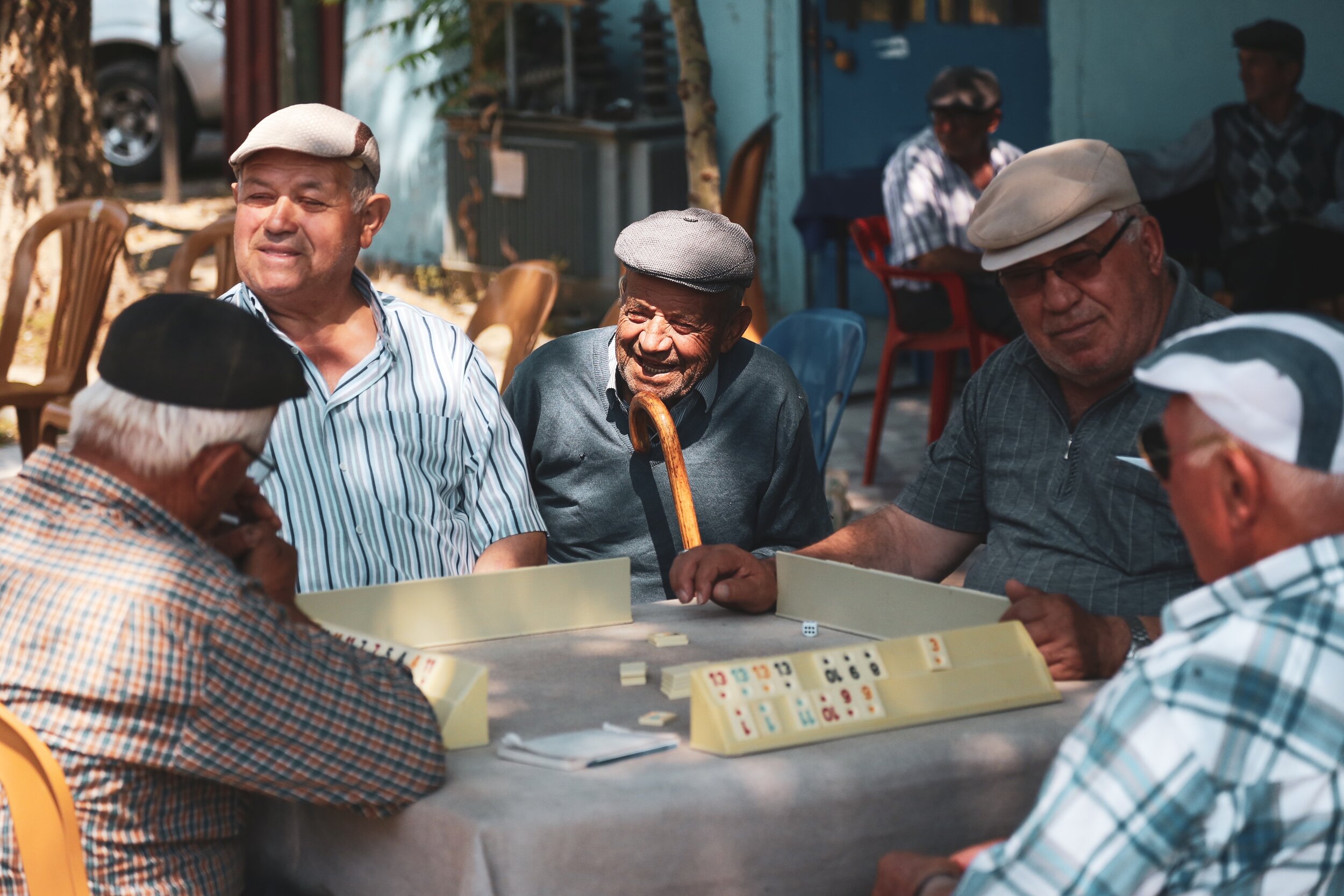How a Moai Improves Your Wellbeing?: Rec. Reading v29
We recognize that habit-building and good mental health can’t be isolated to just one corner of the internet. Myrth is our favorite tool, but it’s not our only tool. In our regular Recommended Reading series, we’ll share links to articles, books, and other tools that we think you’ll find helpful in your journey.
As you may have heard, our MyMoai app will soon be available for beta testers. In the lead-up to that mini-launch, we’re going to be talking about the concept of a moai and what it means.
In a later blog post, we will talk about how the word “moai” has two meanings from two different languages. Our app is named for the Japanese meaning of the word, which is “meeting for a common purpose." Read on for more about the original moai, how the concept has been adapted by health researchers, and where we’re going next with our app.
1. The Origins of Moai in Japan - Lifelong Support and Accountability
Researchers studying blue zones, pockets of extended longevity around the world, focused on communities in Okinawa, Japan, which has one of the highest concentrations of centenarians anywhere. What they found was that moai--supportive groups of five people--were a key part of this longevity.
In small neighborhoods across Okinawa, friends “meet for a common purpose” (sometimes daily and sometimes a couple days a week) to gossip, experience life, and to share advice and even financial assistance when needed. They call these groups their moai. Traditionally, groups of about five young children were paired together and it’s then that they made a commitment to each other for life. As their second family, they would meet regularly with their moai for both work and play and to pool resources. Some moais have lasted over 90 years!
This social connection is key to long, healthy lives, with research indicating that loneliness can actually shorten life expectancies. Sounds like a job for the MyMoai app and the circles you create.
2. Moai Are Based In A Trust Economy
We loved this deep dive into the economic aspects of the original moai from a student who, as part of her senior thesis in economics, studied the way money changed hands in moai. She traveled to Okinawa and interviewed many moai members to better understand how the groups functioned. While the monetary aspect was interesting, we thought this part was broadly applicable to all groups aiming to replicate the benefits of a moai:
The primary function of money in moai today is to hold people accountable. It forces you to show up and be there for your friends, keeping you from losing touch. It ensures you’re always giving to your friends, and you receive from them as well. Because of your trust in your group and their trust in you, you are able to invest not only financially but also in strengthening your relationships when people prove their reliability by showing up and contributing at every meeting.
In other words, no support network can function without trust between the members, and sometimes outside tools are helpful for encouraging and strengthening that trust.
3. Walking Moai - How Moai Are Spreading Across The Globe
Health researchers in the US have adapted the concept of moai to help US residents build healthier habits and stronger connections to each other. One of the earliest projects involved forming groups called “walking moai,” that is, groups of people who came together for the purpose of walking outside a few times a week. As one researcher explained:
“We’re finding that in some of these cities, you can just put people together who want to change health behaviors and organize them around walking or a plant-based potluck,” he said. “We nudge them into hanging out together for 10 weeks. We have created moais that are now several years old, and they are still exerting a healthy influence on members’ lives.”
While these groups in the US are different from the original moai in Japan, they are still rooted in the same core concept: that community and accountability are essential for living productive, happy lives. We wonder if these groups have an app like MyMoai to help them stay accountable and connected outside of their walks?
As the Covid-19 pandemic spread across the globe, many moai that had originally met in person were forced to find other ways to stay connected. Luckily, the internet has lots of tools to help us stay close to each other - including the MyMoai app! Check out these recommendations for moving your moai online from the Beach Cities Health District:
For the first time, physical isolation is the best thing for our health, but decades of research show us that social connection is still crucial while we’re physically distant. Moais can help us be social while practicing physical distancing. … During this time of physical distancing, staying connected via phone, text, e-mail or other virtual platforms is even more important. Make an effort to reach out to your own Moai – or support network – in your life. Share about your new routine, how you’re staying active and well, what you are grateful for, what feels challenging, or just to ask how they are doing.
Part of having a successful, long-term moai is adapting to changes and being flexible while still finding ways to provide support to your fellow members. This pandemic won’t last forever, but there will always be things in life that require flexibility, like unexpected moves or job losses. Having an online component for your moai can help you provide each other support no matter what.
We know how important in-person time is with our community, but during the time of COVID adapting and moving to an online technology may be necessary. We think that many Moais (or Moai like groups) will benefir from the MyMoai app and we can’t wait for you to test it out!

